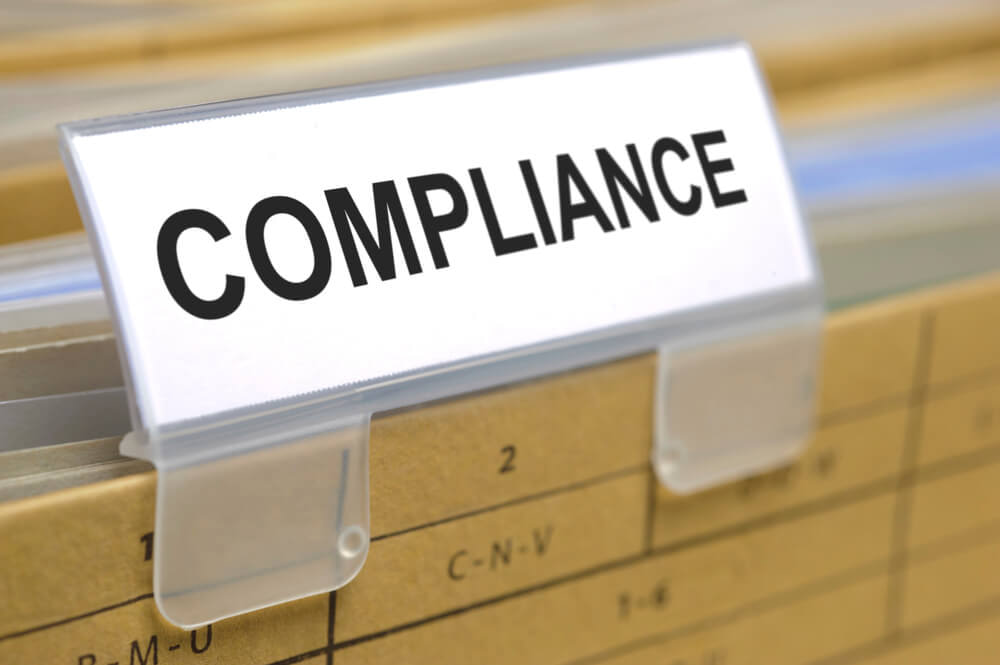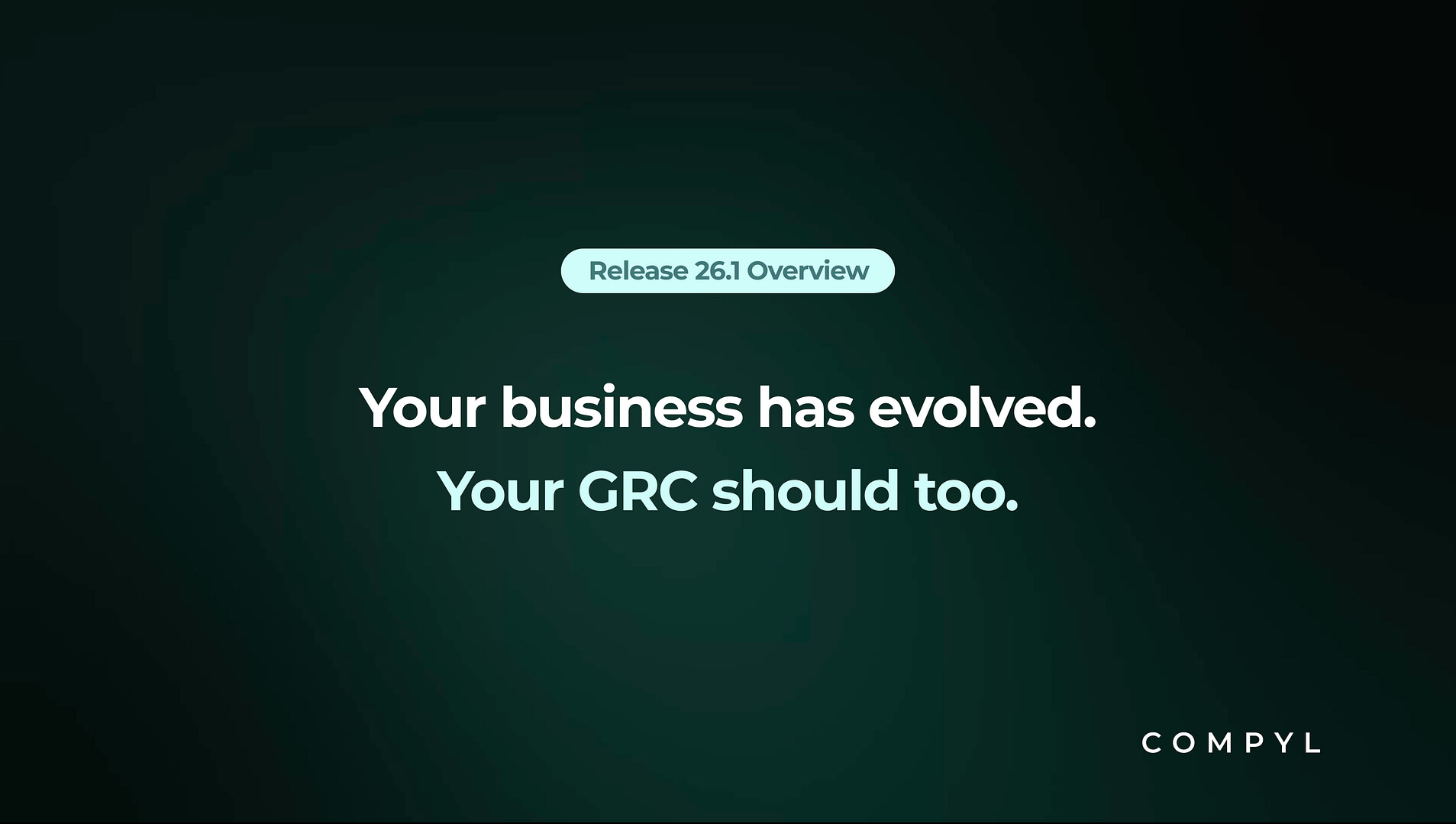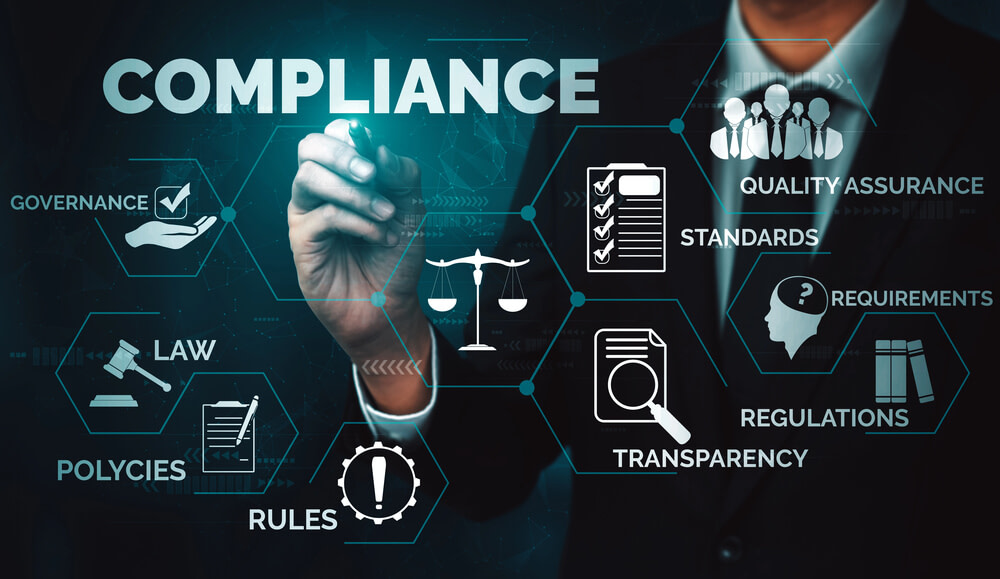The concept of compliance is easy for organizations to understand and get behind. There are clear benefits to following federal laws and regulations — along with swift penalties for noncompliance. Are ethics equally important for today’s businesses? To discover the answer, business professionals need to understand what ethical compliance is and how big an impact it has on company operations and client relationships.
What Is Ethical Compliance, and How Is It Different From Other Frameworks?

Ethical compliance involves establishing and following organizational standards for appropriate conduct. It means going beyond what your company must do legally and choosing to act with moral principles like honesty, respect, and integrity. In simple terms, ethics means doing what is right.
In contrast, conventional compliance frameworks (e.g., GRC and ERM) place more emphasis on regulations, such as GDPR privacy laws and HIPAA rules for protected health information. Cybersecurity frameworks such as ISO 27001 prioritize compliance with industry standards for protecting sensitive data.
These frameworks are ideal for government contractors, fintech companies, software developers, and other industries where clients care more about infosec, technology capabilities, and IT expertise than social or environmental concerns.
What Does Ethical Compliance Involve?
Ethics and compliance start with your company’s brand identity, core values, and governance approach. Your corporate ethics program should reflect principles that you want your organization to follow from top to bottom. It establishes how your company acts as a whole as well as the behavior you expect and promote in stakeholders — from executives to new hires.
Company Culture
Ethical compliance is closely related to fostering a healthy company culture. After all, if your employees don’t respect or support each other, they’re not likely to treat clients much better. On the other hand, a positive atmosphere at the office tends to spill over into productivity, customer service, motivation, and work quality.
Internal Rules Instead of External Obligations
Similar to adopting a healthy lifestyle, ethical compliance is a proactive choice that brings long-term benefits. No one is forcing you, but you know it’s a good idea. As you start to see the benefits — more energy and a happier outlook — “complying” with your self-imposed routine gets easier.
That’s a key difference between conventional frameworks and ethical compliance. With the traditional approach, businesses follow the rules to avoid fines, sanctions, or lawsuits. Ethics-based compliance means enforcing company policies primarily because they align with your business values. In a manner of speaking, your company regulates itself voluntarily.
How Can Your Business Integrate Ethics and Compliance?
For ethics and compliance to have the desired effect on your employees and customers, you have to show that your company is serious about the policies.
Compliance Oversight and Management

Treat ethical compliance like any other framework, starting by putting an executive in charge of program oversight. The Chief Ethics Officer or ethical compliance manager (or ethics and compliance department, in larger enterprises) is responsible for developing ethics guidelines, answering hotlines for employee ethics complaints, monitoring compliance, and administering disciplinary actions for serious violations.
Ethical Decisions
To show your company is serious about ethics, you have to include ethical factors in your decision-making processes. For example, when handing out promotions, a “crush everyone else” mindset shouldn’t win. Instead, employees who show integrity, trustworthiness, and honesty should have top marks. Reward workers who adhere to your company’s ethics standards.
Integration, Not Substitution
A common misconception is that ethics and compliance are at odds with each other. In reality, a good corporate ethics program should support and integrate business compliance needs, not replace them. Government regulations tell you what you have to do, whereas ethical standards are more about why your team does what it does.
Take cybersecurity as an example. Human error is at fault for three out of four data breaches. Many compliance frameworks require you to disclose potential breaches within a short time. How can ethical compliance help?
If you foster a culture of honesty and balanced corrective actions in your organization, it’s more likely for employees who notice the vulnerability to speak up instead of hiding mistakes out of fear of reprisals. This one difference can reduce the impact of cyberattacks massively.
Corporate Social Responsibility
There is a close relationship between ethics programs and other corporate social responsibility initiatives, such as:
- Sustainability and eco-friendly investments
- Community programs and small business support
- Charities and grants
- Fair trade and ethical sourcing
- Employee benefits programs
- Diversity and equality in the workplace
Your organization can decide which social commitments to prioritize and how to express your support. The important thing is to be authentic and follow through consistently — to be ethically compliant.
What Are the Benefits of Ethics and Compliance for Modern Businesses?
Like any type of compliance, organizational ethics programs require investing money and personnel. At the same time, ethical initiatives can deliver valuable immediate and long-term returns.
Improved Customer Relations
Ethical standards show your customers that your business is reliable. Fostering trust is vital in healthcare, finance, marketing, sales, retail, hospitality, and countless other industries. Clients want to know that your brand is ready to go the extra mile to honor your promises — even if you’re not legally required to.
A Culture of Professional Behavior

Promoting integrity in your business encourages an honest internal work ethic, too. When your company shows it values qualities like professionalism, dependability, and teamwork, you can motivate workers to get things done instead of just going through the motions.
An ethical framework also has cybersecurity benefits. These days, over 50% of data breaches come from insider threats. Ethical boundaries can reduce the chances of deliberate sabotage and internal theft. It only works if leadership sets the example, however.
An Improved Reputation With Consumers
Gen Z and Millennials both care a lot about the ethical practices of brands. Over three-quarters of consumers prefer buying from companies that have a positive impact on the world. Nearly 60% of Americans expect companies to take a stand on environmental or social issues.
What Does Ethical Compliance Look Like in Your Industry?
The definition of ethical compliance and the scope of your framework depends on your objectives and industry regulations. At Compyl, we’re experts in ethics and compliance standards for finance, investment, tech, and healthcare companies. Contact us to learn how to streamline your compliance program.



